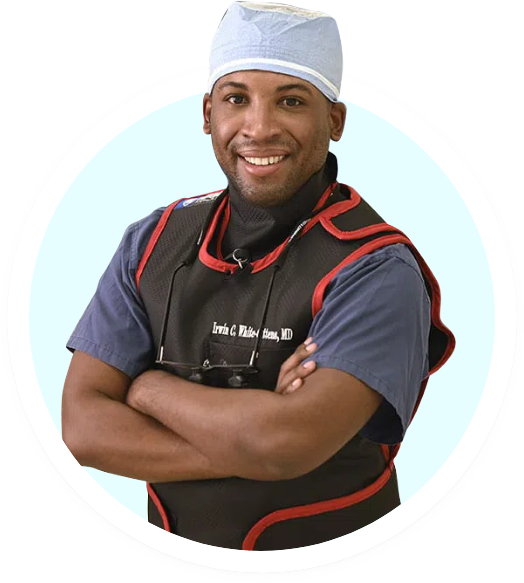Nithi Fernandes, MD ’10, has built a career defined by a deep commitment to the most vulnerable patients—newborns.
Born in the United Arab Emirates and raised in Canada, she quickly pivoted during her undergraduate years at the University of Waterloo from computer science to biomedical sciences after she realized during a summer hospital job that she aspired to become a physician—specifically a neonatologist. That dream brought her to St. George’s University School of Medicine, where she earned her MD.
Dr. Fernandes credits the depth of courses in biology, chemistry, and physiology at Waterloo with helping prepare her for the rigors of SGU’s medical program.
“I had a supportive community at both locations,” she said.
After completing her medical degree, Dr. Fernandes took the proactive step of completing the USMLE Step 3, allowing her to qualify for an H1B visa and expand her residency opportunities. She went on to complete her pediatrics residency at NYC Health + Hospitals/Lincoln, followed by a neonatology fellowship at the University at Buffalo. By 2018, she had become board-certified in both general pediatrics and neonatal-perinatal medicine.
Today, Dr. Fernandes serves as a neonatologist at the Children’s Hospital of Michigan, part of the Detroit Medical Center, where she provides critical care to newborns in one of the region’s busiest neonatal intensive care units. Learn more about her journey from a Canadian undergraduate student to a US-based physician, caring for critically ill or premature newborns.
SGU: What made you choose pediatrics and ultimately neonatology?
Dr. Fernandes: In undergrad, I worked a summer job at Mount Sinai Hospital in Toronto with Dr. Vibhuti Shah, a neonatologist. It was a supportive role, some research organization and data administration. It was my first exposure to medicine, specifically neonatology. I was simply mesmerized by what they could do to save these tiny, vulnerable babies. That fall, I switched majors from science and business to biomedical sciences to pursue the prerequisites for medical school applications, and to take the MCAT. Of course, the counselors at Waterloo were also wonderful in helping me switch my courses to pursue this major.
Pediatrics is a residency which precedes the sub-specialty neonatology fellowship training, so I proceeded onto this path after I finished medical school. Throughout residency, I tried to keep an open mind to other sub-specialty options, but nothing ever interested me more than neonatology. In my third year of fellowship, I was presenting my research to a large audience at a national conference and Dr. Shah actually came to watch my presentation—it was a wonderful full-circle moment.
SGU: What factors led you to choose SGU for medical school?
Dr. Fernandes: Hearing from fellow Canadians who attended SGU and successfully matched into US residency programs influenced my decision, as that was my ultimate goal. Additionally, the opportunity for clinical training at a variety of hospitals during the third and fourth years of medical school helps enhance clinical experience prior to residency.
SGU: What was your experience studying in Grenada for your Basic Sciences?
Dr. Fernandes: Back then, from 2006 to 2008, life was more limited in terms of comforts, such as grocery variety or even frequent flights. Still, all the medical students worked together to make it a good experience, being supportive of each other. Schoolwork kept us very busy and knowing it was only 18 months on the island we wanted to make the most of it overall.
SGU: What was your experience during clinical rotations?
Dr. Fernandes: I did most of my third year in one hospital in Brooklyn, and in my fourth year, I opted to do several different electives in other hospitals in New York and Miami. These various clinical locations truly helped solidify my understanding of how different hospital systems work and it allowed me to see how pediatrics was practiced in various settings. Working in different locations also enabled me to meet different attending physicians and work with them under different circumstances. These unique interactions led me to gather letters of recommendation to bolster my residency application.
SGU: What advice would you give to a Waterloo student considering SGU?
Dr. Fernandes: Take your time to speak to students who have gone through the process, review match rates, explore your interest and commitment to medicine overall. While it is a fun and rewarding journey overall, it can be a grueling experience if a student is not completely dedicated to the finish line.
–Published August 2025

